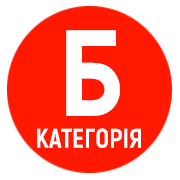“TRIUMPHAL PROCESSION” OF THE BOLSHEVIK POLITICAL REGIME IN UKRAINE IN WINTER OF 1917–1918
DOI:
https://doi.org/10.32782/2409-4544/2021-1/2Keywords:
form of the state, political regime, parliamentary democracy, usurpation of power.Abstract
The process of formation of the Bolshevik political regime in Ukraine in the winter of 1917–1918 are explored in this article. The views of the heads of Bolshevik party organizations on the form of the state in Ukraine are analyzed. The attitude of councils and Bolshevik party organizations in Ukraine to the Central Rada was clarified. The circumstances, the methods of formation of central authorities of the Bolshevik regime in Ukraine, the level of their legitimacy and the degree of effectiveness of country management were characterized. The following conclusions were formulated. During the considered period there was a sharp confrontation on the forms of the state regime and the state system of Ukraine among the heads of Bolshevik organizations in Ukraine. The vast majority of them defended parliamentary democracy and did not agree to usurpation of power. The heads of Kharkiv and Donetsk-Kryvorizka regional organizations professed schovinistic views on the state structure of Ukraine and advocated the accession of these regions to Russia. The vast majority of Councils and heads of Bolshevik organizations in Ukraine recognized the Central Council for the temporary plenipotentiary parliament and were ready to work with it. In Ukraine there were no socio-political conditions for establishing by parliamentary way or by usurping the power of the Bolshevik political regime. Only military intervention of Bolshevik Russia in Ukraine in winter 1917–1918 created the following conditions. The central leadership of the Bolshevik Party did not disdain the help of criminalized soldiers and criminal elements, destroying with the help of military force legitimate representative bodies of the highest and local level, because the Bolsheviks could not gain an advantage in them through democratic elections. This process of destruction of the just-posted parliamentary democracy with its replacement as a dictatorship of the Bolshevik party with extraordinary bodies – revkoms, commissars and forcibly “Bolshevik” Councils, V. Lenin cynically called “triumphant procession”. However, the Bolshevik political regime had no socio-political basis in Ukraine. Its founders could not build a centralized vertical of power and establish effective public administration. The country was engulfed in economic ruin, terror and humanitarian catastrophe.
References
Бош Е.Б. Год борьбы. Киев : Политиздат Украины, 1990. 447 с.
История Украинской ССР : в 10 т. ∕ под ред. Ю.Ю. Кондуфора. Т. 6: Великая Октябрьская социалистическая революция и гражданская революция на Украине. Киев : Наукова думка, 1984. 719 с.
Революция на Украине по мемуарам белых / род ред. Н.Н. Попова. Москва – Ленинград : Госиздат, 1930. 435 с.
Варгатюк П.Л., Гошуляк І.Л., Курас І.Ф. На шляху до I з’їзду КП(б)У. Про минуле – заради майбутнього ∕ упоряд. Ю.І. Шаповал ; редкол. : І.Ф. Курас та ін. Київ : Вид-во при Київ. ун-ті, 1989. С. 22–34.
Варгатюк П.Л. Перший Радянський уряд України: відоме й невідоме. Про минуле – заради майбутнього... С. 198–208.
Романчук О.К. Ультиматум: Хроніка одного конфлікту між Раднаркомом РСФРР і Центральною Радою. Київ : Т-во «Знання» УРСР, 1990. 64 с.
Ленин В. Политический отчёт Центрального комитета 7 марта. Полн. собр. соч. Москва : Изд-во политической литературы, 1974. Т. 36. С. 3–26.
Ленин В. Доклад о ратификации мирного договора 14 марта. Полн. собр. соч. Т. 36. С. 92–111.







